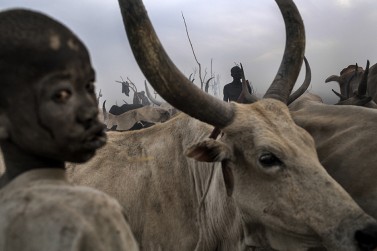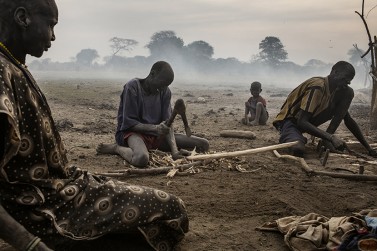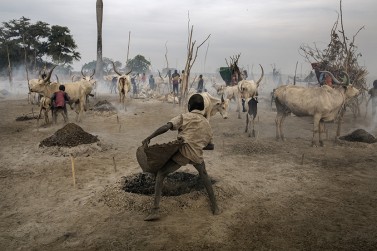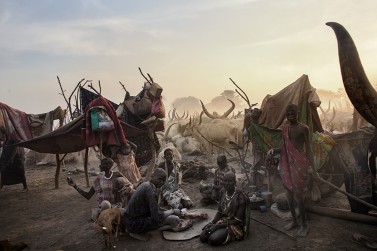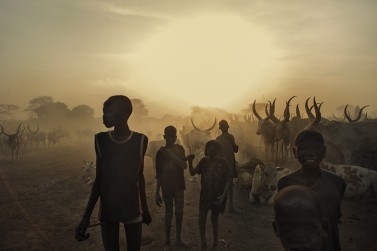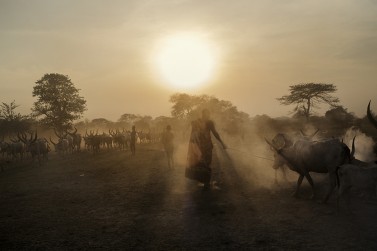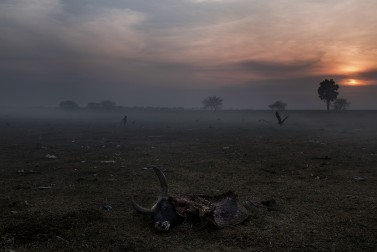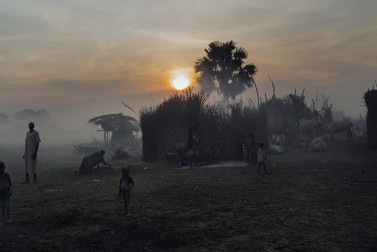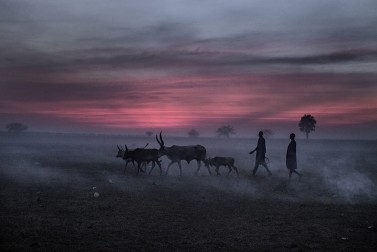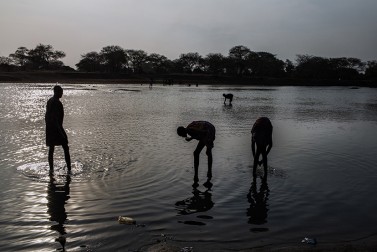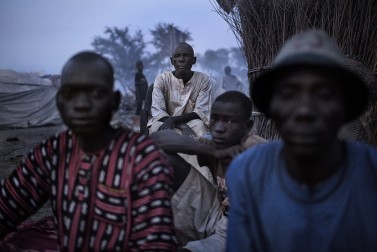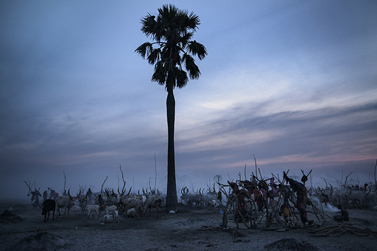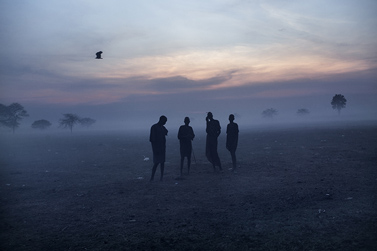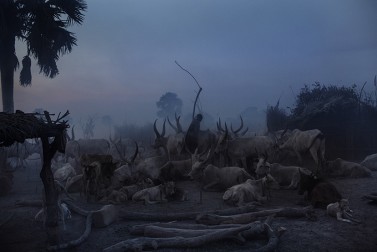MAIORES NOSTRI
South Sudan, Spring 2014
Traditionally, young men oversee the cattle in these camps, herding them across vast expanses of land in search of grazing areas and water sources. These camps are not only places of economic activity but also serve as centers for social interaction and cultural exchange. They provide a space for community members to come together, share stories, and celebrate traditions, strengthening social bonds and preserving cultural heritage. The lifestyle in these camps is deeply connected to the land and the rhythms of nature. Families often migrate seasonally with their herds, following patterns of rainfall and vegetation growth. Life in the camps revolves around the care and maintenance of cattle, with daily tasks ranging from milking and feeding to protecting the herds from predators. Despite the challenges posed by conflict and environmental pressures, cattle camps remain resilient, representing a way of life deeply rooted in tradition and heritage. As custodians of this ancestral legacy, the people of South Sudan continue to uphold the cultural significance and economic vitality of these camps, ensuring their survival for generations to come.
